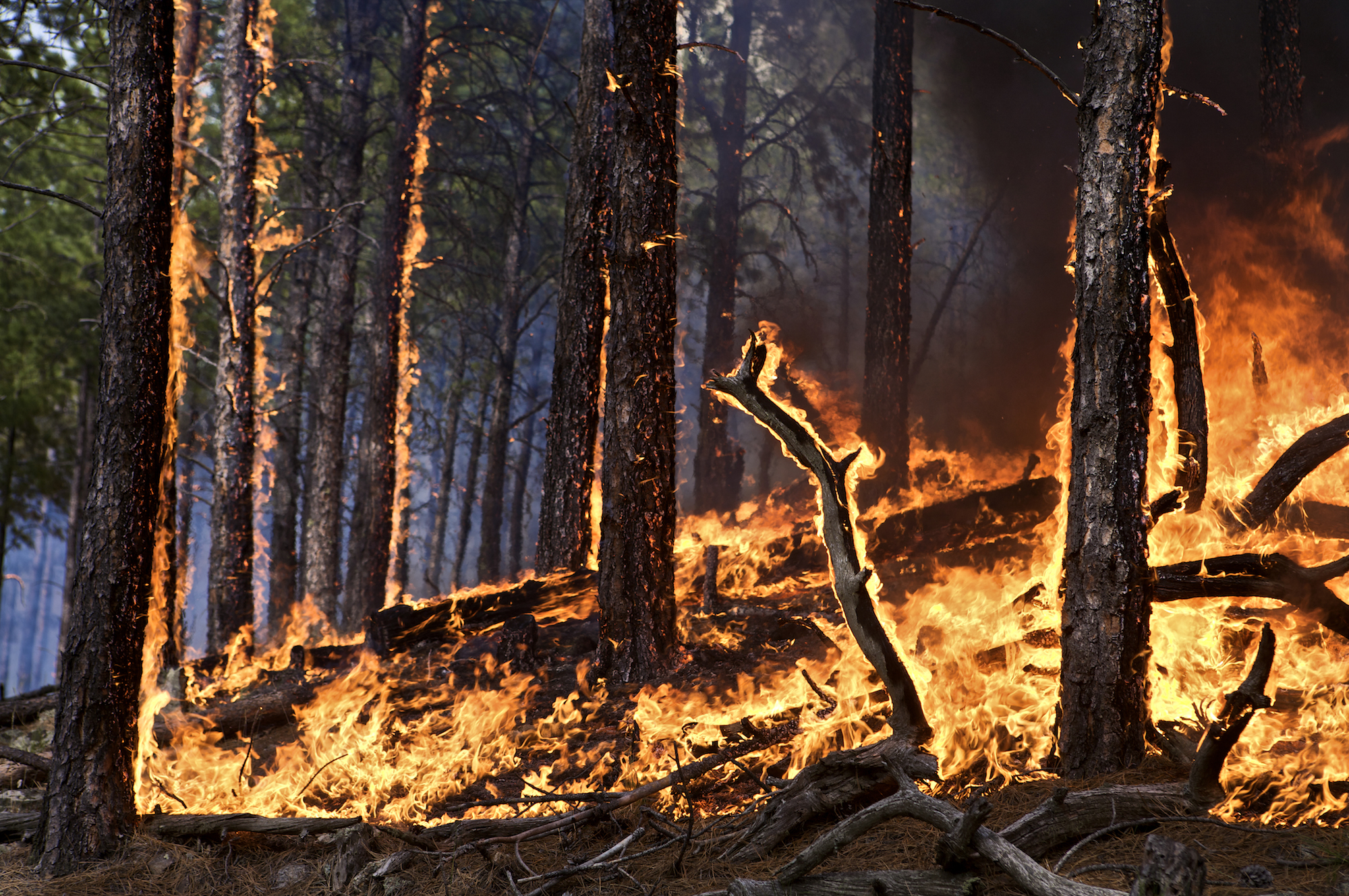The Benefits of Forest Fires
Forest fires have long been regarded as destructive and devastating events. However, it is important to recognize that forest fires also play a crucial role in maintaining the health and vitality of ecosystems. In this article, we will explore the often-overlooked benefits of forest fires and shed light on their positive impact on the environment.
Ecological Renewal
Forest fires are a natural part of many ecosystems and have been occurring for thousands of years. They play a vital role in the renewal and regeneration of forests. When a fire sweeps through an area, it clears away dead vegetation, fallen trees, and other organic debris. This process allows sunlight to reach the forest floor, stimulating the growth of new plant life.
Furthermore, some plant species have evolved to depend on fire for their reproduction. These plants have seeds that remain dormant until they are exposed to the heat of a fire. The intense heat triggers the opening of their seed casings, enabling them to germinate and grow. This unique adaptation ensures the survival of these fire-dependent species.
Nutrient Cycling
Forest fires play a crucial role in nutrient cycling within ecosystems. As a fire burns through an area, it releases nutrients that are locked within dead vegetation and organic matter. These nutrients, such as nitrogen and phosphorus, are then returned to the soil, enriching it and creating fertile conditions for new plant growth.
Additionally, the intense heat of a forest fire breaks down complex organic compounds into simpler forms that are more readily available to plants. This process, known as pyrolysis, enhances the nutrient content of the soil and promotes the growth of diverse plant species.
Habitat Diversity
Forest fires contribute to the creation of diverse habitats within ecosystems. They create a mosaic pattern across the landscape, with areas of burned vegetation adjacent to untouched areas. This patchwork of habitats provides a variety of niches for different plant and animal species.
Some species thrive in recently burned areas, taking advantage of the open space and abundance of resources. These species include fire-adapted plants, insects, and certain bird species. Other species prefer the shelter and cover provided by unburned areas. The coexistence of these different habitats increases overall biodiversity and strengthens the resilience of the ecosystem.
Disease and Pest Control
Forest fires can help control the spread of diseases and pests within forests. They eliminate diseased and infested trees, preventing the further spread of pathogens and insects. By removing these weakened individuals, forest fires promote the overall health and vitality of the ecosystem.
Moreover, the heat generated by a fire can kill off pests and insects that harm trees. This natural control mechanism reduces pest populations and minimizes the damage they can cause to forest ecosystems.
Fire-Adapted Species
Forest fires have shaped the evolution of many plant and animal species. Some plants have developed thick bark or fire-resistant resins that protect them from the intense heat of a fire. These fire-adapted species can survive and even thrive in fire-prone environments.
Additionally, certain animal species have evolved behaviors that allow them to benefit from forest fires. For example, some birds of prey take advantage of the increased visibility and abundance of prey in burned areas. They hunt for small mammals and insects that are forced out of their hiding places by the fire.

While forest fires can be devastating events, it is important to recognize the benefits they bring to ecosystems. From ecological renewal and nutrient cycling to habitat diversity and disease control, forest fires play a vital role in maintaining the health and resilience of forests. By understanding and appreciating these benefits, we can work towards better managing and conserving our natural environments.
Frequently Asked Questions – Benefits of Forest Fires
1. How can forest fires be beneficial?
Forest fires can have several benefits, such as:
Clearing out dead vegetation and allowing new growth
Creating open areas for sunlight to reach the forest floor
Promoting biodiversity by creating diverse habitats
2. Do forest fires help in the natural cycle of forests?
Yes, forest fires are a natural part of the forest ecosystem. They play a role in the regeneration and rejuvenation of forests.
3. Can forest fires improve soil fertility?
Forest fires can enhance soil fertility by returning nutrients to the soil through the burning of organic matter.
4. Are there any benefits for wildlife from forest fires?
Yes, forest fires can benefit wildlife by creating new habitats, promoting the growth of nutritious plants, and providing opportunities for species that depend on fire for their life cycles.
5. Do forest fires help control insect infestations?
Forest fires can help control insect infestations by reducing the population of insects and their eggs, which are often found in dead or decaying vegetation.
6. Can forest fires reduce the risk of larger, more destructive fires?
Yes, controlled or prescribed burns can help reduce the accumulation of flammable materials, decreasing the risk of larger, more destructive fires in the future.
7. Are there any economic benefits associated with forest fires?
In some cases, forest fires can have economic benefits such as providing job opportunities for firefighters, promoting tourism in fire-affected areas, and creating new business opportunities related to forest restoration.
8. How do forest fires contribute to the natural balance of ecosystems?
Forest fires contribute to the natural balance of ecosystems by removing older vegetation, allowing new growth, and maintaining a healthy balance between different plant and animal species.
9. Can forest fires help prevent the spread of invasive species?
Yes, forest fires can help prevent the spread of invasive species by eliminating or reducing their presence in an area, giving native species a chance to thrive.
10. Are there any long-term benefits of forest fires?
Yes, forest fires can have long-term benefits such as promoting forest regeneration, increasing species diversity, and maintaining overall ecosystem health.




